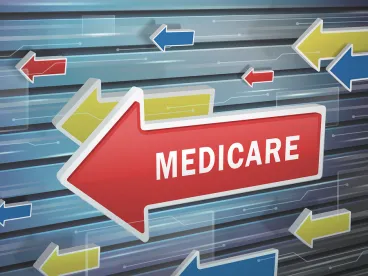The waiver of copayments, coinsurance, and deductibles owed by patients treated by out-of-network laboratories and other providers is a hot topic in the health care industry. Despite the near absence of clear legal prohibitions on this practice, commercial insurers are aggressively pursuing out-of-network providers who fail to collect amounts owed by their members under a variety of statutory and common law theories.
For example, in 2015, Aetna filed suit against Health Diagnostic Laboratory (HDL), Tonya Mallory (HDL’s former CEO), and BlueWave Health Care Consultants (an independent sales group), alleging that they engaged in a variety of illegal actions, including the failure to collect any amounts owed by Aetna’s members, and that Aetna overpaid for services provided by HDL as a result. While HDL settled, Aetna continues to pursue its claims against Ms. Mallory, who recently failed in her efforts to have the case against her dismissed. However, a recent court decision may give providers some comfort. In June 2016, a Texas federal district court prevented Cigna from recovering funds paid to Humble Surgical Hospital, which allegedly waived amounts owed by Cigna’s members and engaged in other misconduct. The court dismissed all of Cigna’s claims and found that Cigna owed $13 million to Humble.
The issue of waiver rarely arises with respect to the Medicare program because the Office of Inspector General for the Department of Health and Human Services (the OIG) published a Special Fraud Alert addressing this practice in 1994. There, the OIG warned that the routine waiver of Medicare copayments or deductibles can result in False Claims Act and Anti-Kickback Statute violations, as well as the excessive utilization of Medicare-covered items and services. As stated by the OIG, “[w]hen providers…forgive financial obligations for reasons other than genuine financial hardship of the particular patient, they may be unlawfully inducing that patient to purchase items or services from them.” The OIG nevertheless cautioned that waivers based on financial hardship should be used “occasionally to address the special financial needs of a particular patient.”
Despite the OIG’s clear direction regarding waivers – and the subsequent issuance of other relevant guidance over the years – a False Claims Act settlement recently announced by the U.S. Attorney for the Southern District of New York involves a physician group’s routine waiver of copayments owed by Medicare beneficiaries. In a Stipulation and Order, the physician group, Hudson Valley Hematology-Oncology Associates, R.L.L.P., “admitted, acknowledged, and accepted responsibility” for the following misconduct:
-
Routinely waiving Medicare beneficiaries’ copayments without an individualized documented determination of financial hardship or exhaustion of reasonable collection efforts;
-
Billing Medicare for the waived copayments, resulting in higher reimbursement amounts from Medicare than Hudson Valley was entitled to;
-
Overbilling Medicare and Medicaid for evaluation and management services codes, in addition to billing for routine procedures (such as chemotherapy, injections or venipunctures) on the same date, even though Hudson Valley had not documented that it provided any significant, separately identifiable evaluation and management services to the beneficiaries; and
-
Billing Medicare and Medicaid for evaluation and management services codes without documenting in the medical record that those services were medically necessary and/or that those services were actually performed.
While it is unlikely that very many providers are engaging in this type of conduct, this case nevertheless serves as an important reminder to providers to (1) implement clear, realistic guidelines for evaluating financial hardship, (2) maintain documentation of financial hardship determinations, (3) and engage in reasonable, documented efforts to collect amounts owed by patients. Providers should consider employing these safeguards related to patients covered by commercial insurers as well as state and federal health care programs.




 />i
/>i
